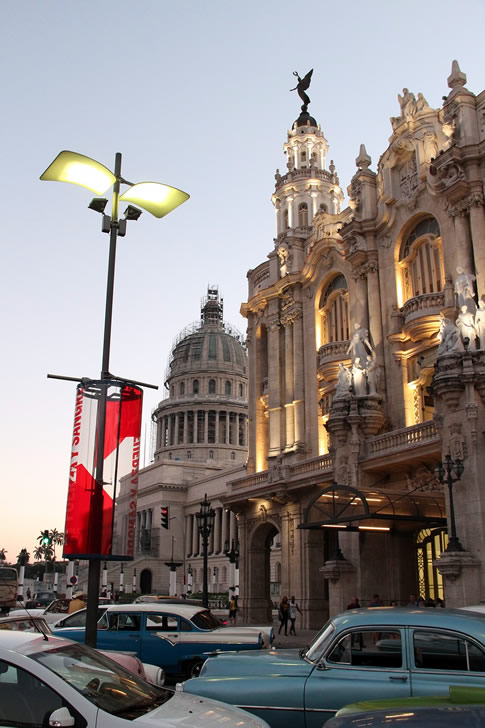Teaching English in Cuba
Options for teaching English in Cuba
Teachers looking to teach English in Cuba will find the majority of jobs in the capital city of Havana. Cuba offers many opportunities for expat teachers wanting to start their international teaching career, as well, there are equal opportunities for licensed and experienced teachers throughout all grade levels.
Teaching in Cuba could be at either public or private international schools. The Cuban education system follows a strict set of highly regulated standards to ensure all children living in Cuba receive a first-class education. This is good news for teachers wanting to teach English in Cuba, as there will always be a high demand for quality educators.

Salary and benefits while teaching in Cuba
| Teaching Benefit Type | Teaching Benefit Details |
|---|---|
| Yearly Salary | Up to $2,000 USD/month. |
| Working Hours | 35 – 40 hours per week |
| Relocation Allowance | May be provided, specific to the individual school |
| Vacation | Summer vacation and national holidays |
| Health Insurance | May be provided, specific to the individual school |
| Contract Duration | 1 – 2 years |
How to teach English in Cuba
Teaching English in Cuba – Hiring
Hiring for ESL and English teachers in Cuba can happen at any time throughout the year and is dependent on whether there are openings at specific schools. It is advisable to keep checking Teach Away’s job board for new openings for teaching abroad positions in Cuba.
Qualifications to teach English in Cuba
To teach English in Cuba, it is necessary for teachers to have a Bachelor’s degree, especially if they want to teach in a private international school.
Due to Cuba’s high literacy rate and quality of education, it is strongly recommended that teachers have additional ESL teaching qualifications such as a TEFL Online Certificate that can equip them with the necessary skills and knowledge to land a job teaching English in Cuba.
Visas for teachers in Cuba
Obtaining a visa to teach English in Cuba may still be somewhat challenging for US citizens, although this issue is working to be resolved. For the most part, however, obtaining a visa to teach English in Cuba is very similar to the application process in other Latin American countries. Many schools will assist you in getting a sponsored visa that allows you to teach in Cuba and stay for longer than three months.

Living in Cuba
Cuba is commonly misunderstood by others when in reality, life in Cuba is much more similar to life in a developed, first-world than commonly perceived. The Cuban government is committed to ensuring safe housing for all citizens that are employed. The Cuban culture is unique and charming – different from anywhere else. Havana is the largest city in the country and is full of charming character, culture and famous cuisine.
Things to do for teachers in Cuba
Cuba is a country full of culture, history and great food. More commonly known as a top Caribbean vacation destination, there is no limit to the amount of free time spent at the beach or on the water.
The capital city of Havana is known for its unique, colorful architecture, world-class cuisine, and entertainment. Be sure to visit the Plaza Vieja, Havana’s historic city square and sample traditional Cuban food and even sample from the Plaza’s own microbrewery! Or, you can stroll through Calle Mercaderes, or “Merchant’s Street”, a car-free block restored to its former 18th-century charm, full of museums and unique shops that are authentically Cuban.
There are endless options for beach time in Cuba! Varadero, located just east of Havana, is a vacationer’s paradise full of breathtaking white-sand beaches. Although popular with tourists, Varadero is worth it if you are craving some extra beach hours on the weekend.

Experience teaching in Cuba
Cuba at a glance
Country information
Capital: Havana
Language: Spanish
Population: 11.2 million
Currency: Cuban Peso
Major religion: Roman Catholic, Protestant, Jehovah’s Witness, Jewish, Santeria
Climate: Subtropical
Quick facts
Cuba is the most populated island in the Caribbean.
Bacardi rum was originally made in Cuba, but the production was moved to Puerto Rico after Fidel Castro’s takeover.
The Manjuari, a prehistoric fish, is not found anywhere else in the world other than in Cuba.
Christmas was not recognized as an official holiday in Cuba until 1997.
Recipes are usually passed down through generations through stories rather than writing them down.
Dance is extremely important in Cuba, and the island and be attributed to the creation of Bolero, Mambo, and Cha Cha dance styles.
In Cuban schools, uniform color represents the grade level that the child is in.


















